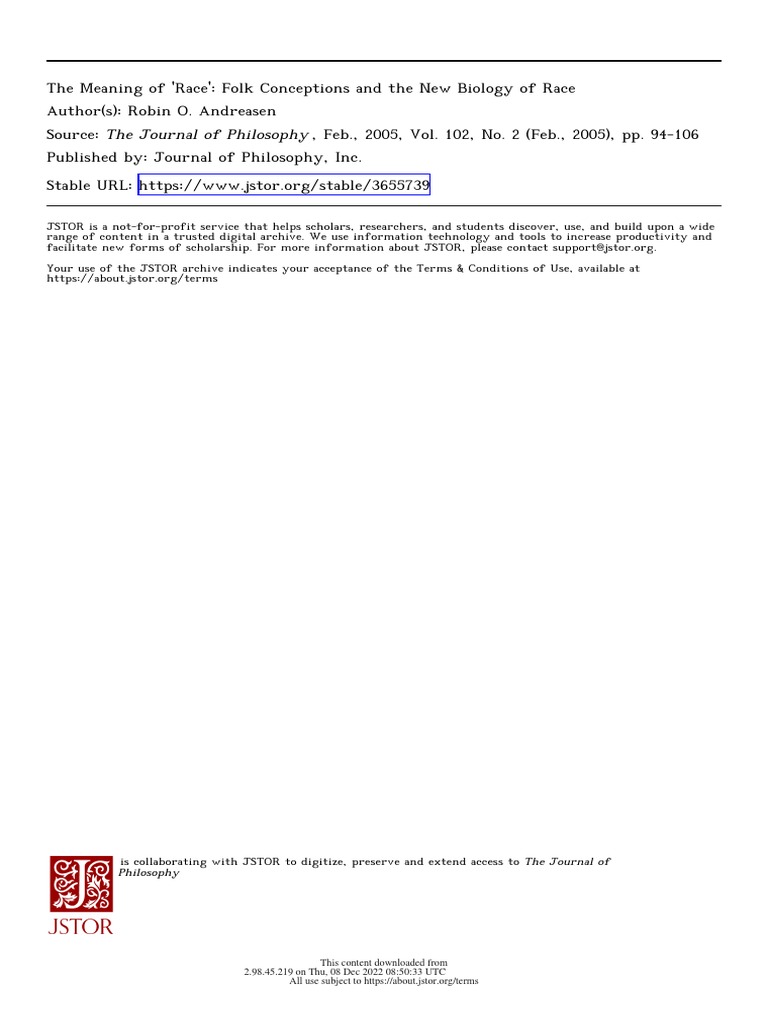The concept of race has historically evoked polarized debates and emotional discourse, often accompanied by an array of sociopolitical implications. Commonly observed as a tangible identifier of social stratification, race nonetheless eludes a precise definition in many respects. Several academic approaches focus on biological, cultural, and social dimensions of racial identity, yet the Bahá’í teachings offer a paradigm shift, suggesting a new and nuanced understanding of race that transcends these conventional frameworks. This discourse explores the Bahá’í perspective, emphasizing unity, the fluidity of identity, and the intrinsic equality of all individuals.
At the heart of Bahá’í teachings lies the principle of unity in diversity. This doctrine posits that while individuals may manifest differing cultural heritages, ethnic identities, and personal histories, these variances should not impede the recognition of shared humanity. The Bahá’í Faith regards humanity as a single family, fundamentally interconnected irrespective of superficial distinctions. This perspective challenges the prevailing notion of race as a binary construct, advocating instead for an understanding of race as a continuum informed by sociocultural evolution.
One must acknowledge that much of contemporary understanding of race has been clouded by historical animosities and misconceptions. The rigidity of racial classifications often stems from an over-reliance on phenotypical traits—such as skin color, hair texture, and facial features—resulting in a delineation that appears both arbitrary and oversimplified. The Bahá’í view reframes this discourse, arguing that race is not a fixed attribute, but rather a reflection of the myriad influences from one’s environment, history, and individual experiences. Such an emphasis on the malleability of identity invites an expansive redefinition of race, opening avenues for mutual appreciation and understanding.
Moreover, the Bahá’í teachings elucidate the detrimental consequences of racial prejudice. They assert that an individual’s worth is inherent, deriving from their spiritual and moral nature rather than exterior attributes. By emphasizing this core belief in the equality of all persons, the Bahá’í Faith implores its followers to combat systemic injustice and prejudice, advocating for social structures that enshrine equitable treatment across racial lines. This understanding energizes the movement towards racial harmony and lays the foundation for cooperative interactions amongst diverse communities.
In contemplating race through the lens of Bahá’í teachings, one recognizes the potential for a rich intercultural exchange that transcends borders and transcends the limitations imposed by conventional racial categorizations. This intricate interplay suggests that local practices and beliefs should be harmonized with global ideals. This dynamic necessitates an active engagement with diverse cultural narratives, allowing for the synthesis of knowledge that paves the way toward mutual understanding.
Furthermore, the Bahá’í emphasis on education plays a pivotal role in reshaping perceptions related to race. Through the promotion of comprehensive, quality education, the Faith advocates for informed citizenship that diminishes ignorance—a common catalyst for prejudice. Knowledge leads to understanding, and understanding can dismantle archaic notions of racial superiority and inferiority, fostering a more equitable societal framework. As individuals explore multiculturalism and engage with global histories, they become equipped to navigate complexities surrounding race with profound sensitivity and clarity.
Moreover, the Bahá’í Faith inherently values the contributions of women and marginalized communities, further enriching its discourse on race. The intersectionality of gender and race elucidates the subtle, often overlooked nuances in discussions surrounding identity and representation. Bahá’í teachings encourage inclusive dialogue that amplifies the voices of all individuals, particularly those historically marginalized. This expansive inclusion deepens the understanding of justice, beauty, and collaboration within human interactions.
Critical to this dialogue is the cumulative progress made within Bahá’í communities worldwide. Case studies showing initiatives that combat racial discrimination exemplify the Faith’s proactive stance. For instance, community-based projects that foster intercultural understanding serve as practical applications that promote racial harmony in diverse social contexts. These efforts illustrate that Bahá’í teachings are not merely theoretical; they are actionable principles that advocate for transformation within society.
In summation, Bahá’í teachings offer a transformative lens through which to consider race. They dismantle the rigid structures that have historically governed racial identity. By embracing unity in diversity, engaging in comprehensive education, and advocating for the inclusion of marginalized voices, the Bahá’í Faith presents a holistic approach to understanding race as an evolving construct rather than a static classification. Such an understanding cultivates an environment ripe for reconciliation and collaboration across communities, a vision that is desperately needed in a world often marked by division. Through this reevaluation of race, the Bahá’í teachings illuminate a pathway towards a more harmonious and just society—one that celebrates the unity of humanity while recognizing the richness found in diversity.
